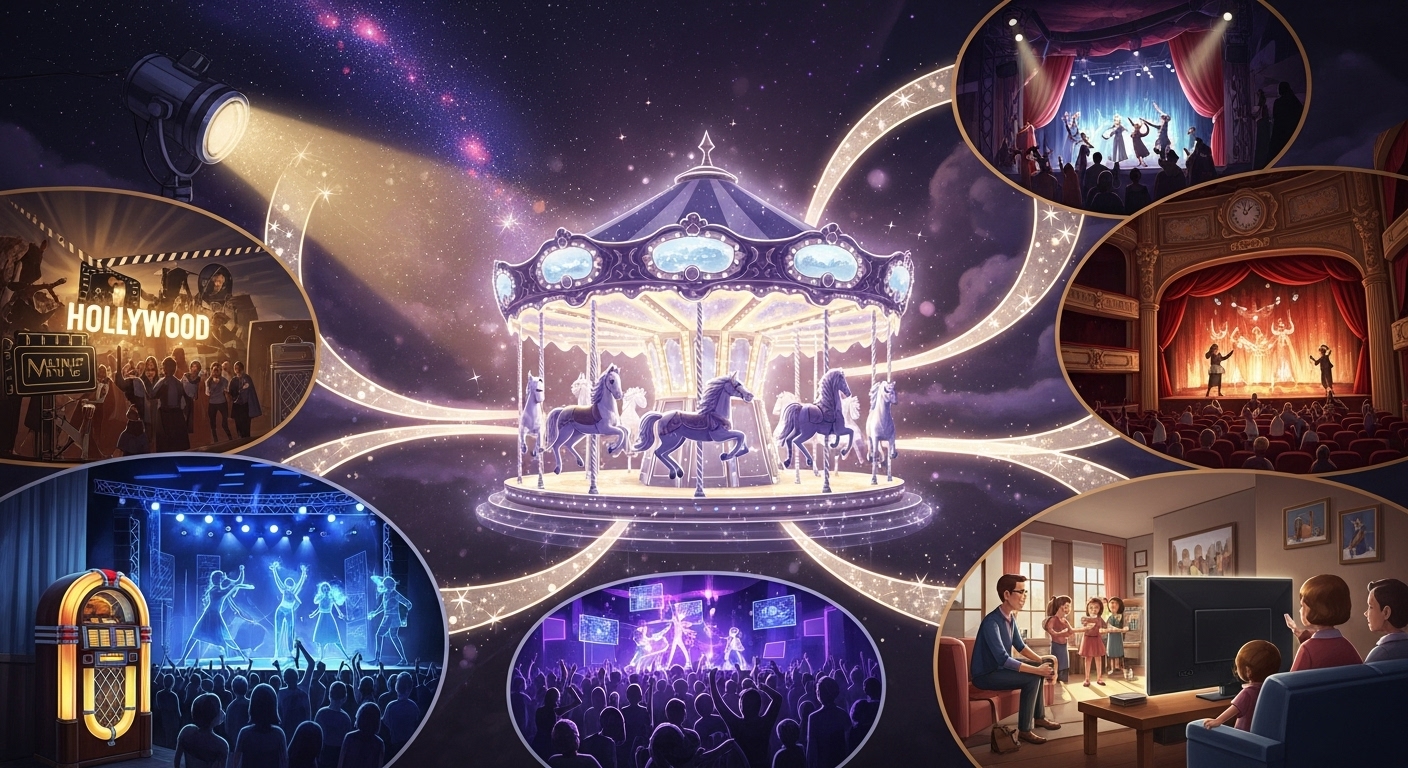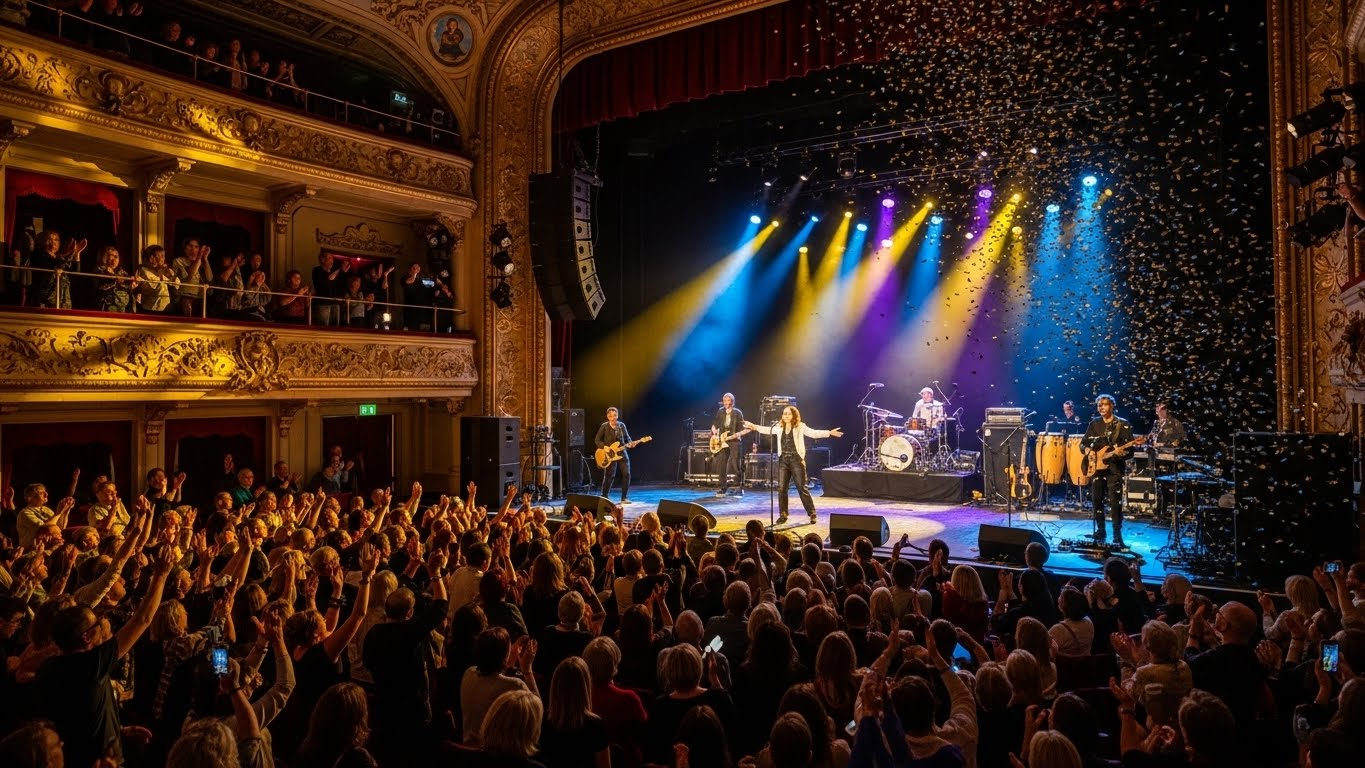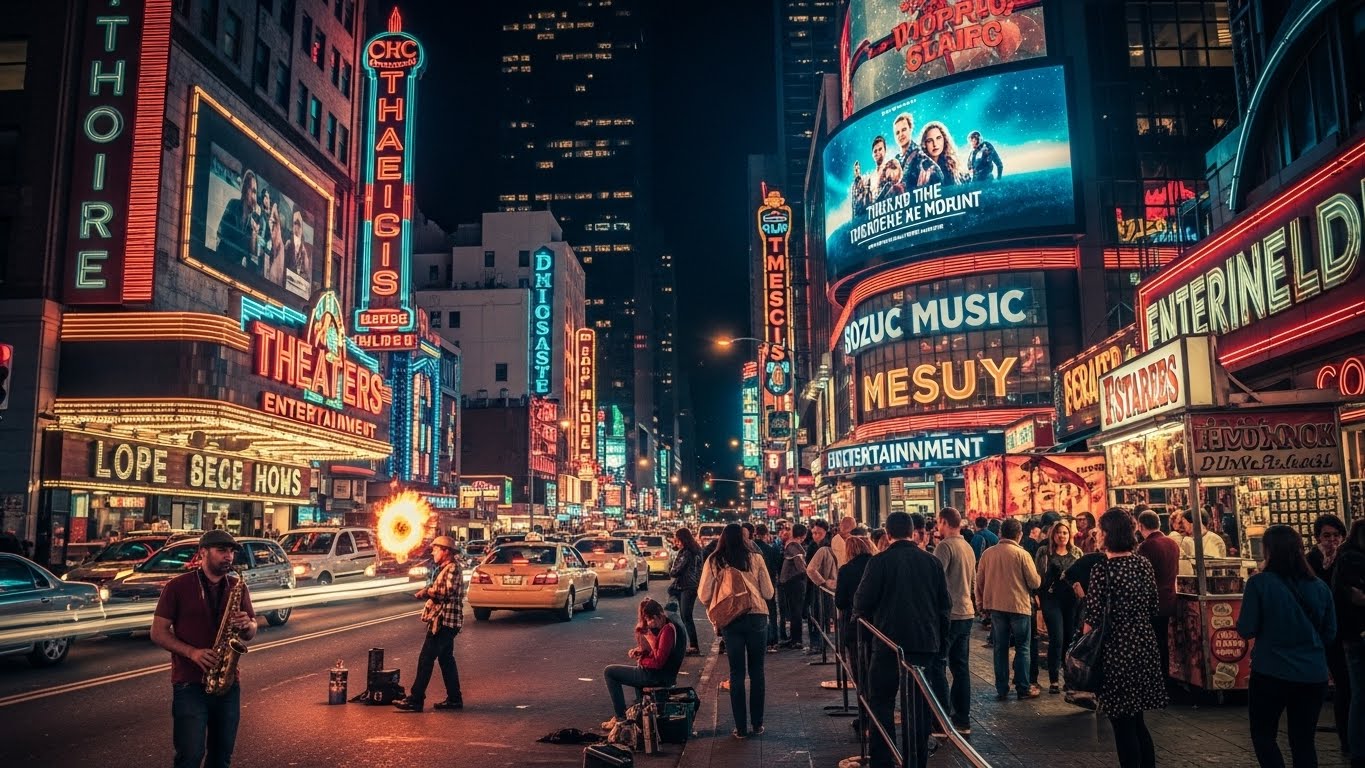Entertainment is more than just a way to pass time—it is the heartbeat of culture, the mirror of society, and the thread that weaves human emotions together. From the earliest forms of storytelling around campfires to the glittering lights of modern cinemas, from live performances to virtual streaming, entertainment has evolved in ways that reflect our growth as a civilization. It allows us to escape, to dream, to laugh, to cry, and to feel alive in moments when reality becomes too heavy or too dull.
In this exploration of entertainment, we will dive deep into its diverse forms, its cultural importance, its technological evolution, and its impact on our emotions and society as a whole.
The Essence of Entertainment
At its core, entertainment is about engagement. It captures attention, evokes emotion, and offers a shared experience between creators and audiences. It has existed since the dawn of humanity—music, dance, drama, and storytelling were the first tools of entertainment long before books or screens existed. These early forms were often communal, bringing people together in celebration, mourning, or ritual.
Over time, entertainment transformed into an industry, yet it never lost its human essence. Whether it is a film, a song, or a performance, entertainment still fulfills one fundamental human desire: the need for emotional stimulation. It reminds us that life is not only about survival but also about joy, creativity, and connection.
The Evolution of Entertainment
The journey of entertainment through history is fascinating. In ancient civilizations, drama was born in Greece with tragedies and comedies that reflected the moral and political values of the time. In Rome, gladiatorial games captivated crowds, while in Asia, traditional dances, music, and poetry thrived as forms of art and storytelling.
With the invention of the printing press, the written word became a powerful form of entertainment, allowing people to explore worlds beyond their own imagination. The 19th century saw the rise of theater and opera, where live performances became symbols of cultural refinement. Then came cinema in the early 20th century, changing the world forever.
The silver screen brought stories to life in ways people had never imagined. Soon after, radio entered homes, followed by television, which became the centerpiece of family life. Each technological revolution expanded the scope of entertainment, making it more accessible and diverse. Today, digital media, video games, and social platforms have taken entertainment into the palms of our hands.
Cinema: The Magic of Moving Pictures
Cinema remains one of the most influential forms of entertainment. It combines storytelling, visual art, music, and emotion into one immersive experience. Movies have the power to make us laugh, cry, think, and dream. They shape our perceptions of the world, reflect social issues, and sometimes even inspire change.
From black-and-white silent films to modern blockbusters filled with visual effects, cinema continues to evolve. Directors and actors have become cultural icons, and their creations have become part of our collective memory. Genres such as romance, comedy, thriller, fantasy, and science fiction give audiences a variety of ways to experience the world through different lenses.
Films like epic dramas teach lessons about humanity, while animated features ignite imagination in both children and adults. In every era, cinema has managed to adapt to its audience’s desires, blending artistry with technology.
Music: The Universal Language of Emotion
If there is one form of entertainment that transcends all barriers, it is music. From the rhythmic beats of tribal drums to the symphonies of orchestras and the pulsating energy of pop concerts, music connects people across generations and cultures.
Music has the unique ability to express emotions that words cannot. It heals, inspires, and brings people together. Every culture has its distinct sound, instruments, and traditions, yet the essence of music—its rhythm, harmony, and emotion—is universal.
Over time, music has adapted to every technological shift. From vinyl records to digital streaming, the way we listen has changed, but the emotional connection remains the same. Artists have become storytellers of their era, using lyrics and melodies to express their thoughts, struggles, and hopes.
Whether it is classical, jazz, rock, or hip-hop, music defines moments in our lives. It plays at celebrations, comforts us in heartbreak, and gives voice to our feelings when we cannot find the words ourselves.
The World of Television
Television brought entertainment directly into people’s homes, revolutionizing how stories were told and consumed. From news and sitcoms to dramas and documentaries, it became a medium that could entertain and educate at the same time.
The golden age of television introduced iconic shows that still influence today’s creators. It became a window to the world, showing not just fiction but also real-life events that shaped societies. Families gathered around the television set every evening, making it a shared experience and a part of daily life.
In the modern era, streaming platforms have transformed television again. Audiences are no longer limited by schedules or regions. Now, one can watch a show from another country, binge-watch entire seasons in one sitting, and discover stories from every corner of the world.
Theatre: The Living Art
While film and television dominate global entertainment, live theater remains a timeless art form. There is something magical about watching a story unfold in front of your eyes, with real actors performing in real time. The immediacy of theater, the connection between performers and audience, and the authenticity of live performance create an experience that cannot be replicated on a screen.
Theater has survived for centuries because it adapts while staying true to its essence. Modern plays explore contemporary issues, while classic works continue to remind us of the depth of human emotion and imagination. From Shakespearean drama to musical theater, it continues to thrive as a form of artistic expression and social reflection.
The Digital Revolution and Online Entertainment
The 21st century has completely redefined entertainment. With the rise of the internet and mobile technology, content consumption has become faster, personalized, and global. Platforms allow users to access films, music, shows, and games instantly. Social media has blurred the line between creators and audiences—anyone can now be an entertainer with just a smartphone.
This democratization of entertainment has opened doors for countless creators around the world. YouTube videos, podcasts, online games, and short-form content have become integral parts of modern entertainment. People no longer depend on big studios or networks; creativity has become accessible to everyone.
However, this digital explosion also brings challenges. The endless availability of content can sometimes overwhelm audiences, making it difficult to choose quality over quantity. Still, the internet has undoubtedly made entertainment more diverse and inclusive than ever before.
Gaming: The New Age of Interactive Entertainment
Video games have transformed from simple pastimes into one of the largest entertainment industries in the world. They combine storytelling, visuals, and interactivity, offering experiences that traditional media cannot match. Players are not just spectators—they are participants in the story.
Modern gaming offers complex narratives, emotional depth, and cinematic visuals. Online multiplayer games connect people from around the world, creating virtual communities that rival real ones. Esports, competitive gaming tournaments, have become global spectacles watched by millions.
Gaming also promotes creativity, strategic thinking, and teamwork. It has evolved from being seen as mere leisure into a legitimate cultural and artistic medium.
The Influence of Celebrities and Pop Culture
Entertainment has also given rise to celebrity culture, where public figures influence trends, fashion, language, and even social movements. Celebrities, once distant and mysterious, are now more accessible than ever thanks to social media. Fans feel closer to their idols, following their daily lives, opinions, and creative journeys.
Pop culture, driven by films, music, sports, and social media, shapes the collective consciousness of each generation. It creates shared moments—catchphrases, songs, and viral trends—that become symbols of an era. From classic movie icons to digital influencers, entertainment continues to create stars who inspire and reflect the aspirations of society.
The Role of Entertainment in Society
Entertainment is not just about fun; it is also a powerful social and cultural tool. It reflects values, challenges norms, and sparks conversations. Through films, music, and literature, people learn about different perspectives, cultures, and histories.
Social issues such as equality, climate change, and mental health have found a voice in entertainment. Artists use their platforms to raise awareness, inspire empathy, and encourage change. Entertainment has the power to influence opinions, unite communities, and even shape politics.
It also plays a vital role in mental health. In a world full of stress and uncertainty, entertainment offers escape and relaxation. Watching a comedy show, listening to soothing music, or reading a captivating story helps people recharge emotionally.
The Globalization of Entertainment
One of the most exciting aspects of modern entertainment is its globalization. Audiences today enjoy content from every corner of the world. Korean dramas, Indian films, Latin American music, and Japanese anime have gained international fanbases.
This cultural exchange promotes understanding and appreciation among nations. It proves that despite language or cultural differences, the emotions at the heart of entertainment are universal. People everywhere laugh at similar jokes, cry at similar stories, and cheer for similar heroes.
The Future of Entertainment
The future of entertainment promises to be even more immersive and personalized. Virtual reality, augmented reality, and artificial intelligence are already transforming how we experience stories and music. Imagine stepping inside a film, interacting with characters, or attending a concert from your living room through VR technology.
AI-generated art, music, and scripts are also becoming part of the creative landscape, raising new questions about authorship and creativity. The boundaries between real and virtual are blurring, giving rise to entirely new forms of entertainment.
Despite these technological advancements, one thing will always remain constant: the human need for storytelling. Whether told by a person, performed by an actor, or generated by a machine, stories will continue to move, teach, and entertain us.
Conclusion
Entertainment is a reflection of who we are. It evolves with us, adapts to our technology, and expresses our emotions, dreams, and fears. It connects generations, unites cultures, and defines moments in history.
From ancient dances to digital worlds, from live performances to streaming platforms, entertainment continues to remind us that life is not just about existing but about experiencing. It allows us to live countless lives through stories, music, and art. It brings joy in sadness, laughter in chaos, and meaning in monotony.
As long as humans exist, entertainment will continue to thrive—because it is not just part of life; it is life in motion, imagination in action, and emotion in expression.



